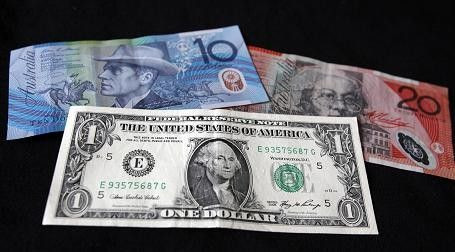Global Inflation 'Disaster' Coming, Economist Andy Xie Warns

The Federal Reserve didn't see the U.S. subprime-mortgage crisis coming. The European Central Bank was clueless about the euro zone's debt crisis before it hit.
There is little reason, then, to believe these regulators will see the coming global inflation disaster, independent economist Andy Xie warns in a recent commentary.
Xie based his prediction on the causal relationship between money and inflation.
Short-term factors may temporarily slow the process ... [but] there has been no exception to rapid monetary growth leading to inflation, he writes.
In the years since the 2008 global financial crisis, the United States and Europe have maintained very loose monetary policy, and Japan has recently expanded its stimulus, James Bullard, president of the Federal Reserve Bank of St. Louis, told Dow Jones Newswires in a recent interview.
The Fed's balance, for example, has more than tripled since September 2008.
Many developing-market countries whose currencies are pegged to major currencies, such as China, have imported these loose policies.
That sounds like a very easy global monetary policy to me, and that's why I think there's a bit of upward inflation risk, Bullard said.
So far, however, inflation remains muted among developed economies. The U.S. Consumer Price Index, for example, rose 0.4 percent in February from the previous month. Excluding food and energy, consumer prices were up only 0.1 percent.
Pointing to this fact, policymakers from developed countries assert that their domestic inflation and inflation expectations are subdued.
Xie, however, thinks these officials misunderstand the impact of globalization, which has indeed kept inflation in check, temporarily, in the developed world. He believes inflation ultimately will take hold in these countries, and once that happens policymakers everywhere will find it hard to reverse.
Inflation is currently concentrated in developing countries because their banking systems are healthy (or can be forced by the government to lend money, as is the case in China) and labor costs are low.
Liquidity, therefore, flows there instead of to developed countries, where the financial systems are damaged and labor costs remain high.
Inflation in tradable commodities -- Xie blames their rising prices mainly on loose monetary policy -- also disproportionately afflicts developing economies.
Xie estimates that energy costs are 5 percent of gross domestic product for developed countries and 10 percent for developing ones. The same principle applies to other commodities such as food and industrial metals.
The West, however, isn't immune to commodities inflation, as the oil shock of the 1970s showed.
There are other ways inflation can strike in the West, for example through continued rising prices of imports from developing countries.
Inflation could surge if these exporters decide to let their currencies appreciate, which would both raise the price of globally traded commodities and further increase the price of their goods sold abroad.
While currency appreciation is one of the few effective tools developing countries have to control inflation, they are reluctant to use it because their economies depend on cheap exports to the West, Xie notes.
Western countries, too, face a paradox.
If their wounded labor markets and financial systems recover, inflation could resurge, as wages account for greater than two-thirds of total cost in these economies, the economist adds.
In pockets of the U.S. labor market, wage inflation is already apparent. Salaries in the U.S. energy sector, for example, rose about 6 percent over the past 12 months.
At the heart of Xie's thesis is that no individual country, not even the United States, can handle global trade (which totaled nearly $19 trillion in 2010, compared with U.S. GDP of about $15 trillion) and its policy consequences.
In some developing countries, trade accounts for a majority of the economy. The global financial system, too, often trumps the financial systems of individual countries.
Xie fears individual central banks and transnational economic institutions such as the International Monetary Fund aren't equipped to deal with the coming inflation disaster.
Xie, who studied at the Massachusetts Institute of Technology, has a track record of calling financial disasters. He predicted the Japanese asset bubble of the 1980s, the 1997 Asian financial crisis, the deflation of the dot-com bubble and the U.S. subprime mortgage crisis.
He claims he has never called something a bubble that turned out not to be a bubble.
© Copyright IBTimes 2025. All rights reserved.




















